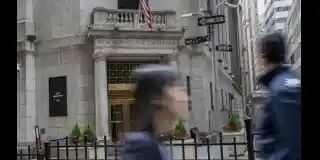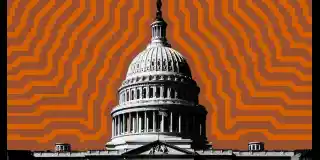Federal Judge Preliminarily Delays Ban on Noncompete Agreements
A federal judge on Wednesday preliminarily delayed a ban on noncompete agreements from taking effect for a handful of employers on September 4. Unless the judge makes another ruling to the contrary before that date, the ban on noncompete agreements will go into effect for the majority of companies in the US. But they will learn later this summer if that still holds. 'While this order is preliminary, the Court intends to rule on the ultimate merits of this action on or before August 30, 2024,' wrote Judge Ada Brown of the US District Court for the Northern District of Texas.
There is likely to be a concerted effort between now and the end of August to persuade the judge to block the ban nationwide, according to Jesse Coleman, a partner at the law firm Seyfarth Shaw in Houston, which represents SHRM, a human resource management association. The ban, which prohibits employers from enforcing noncompete clauses in most existing employment agreements and bans companies from including them in all future ones, was approved by the Federal Trade Commission in April. Within a day of the FTC approval, the agency was sued by Ryan LLC, a tax services and software provider based in Texas, and, separately, by the US Chamber of Commerce and other business groups. Wednesday's order limits the preliminary injunction to just the plaintiff (Ryan LLC) and the plaintiffs-intervenors, which are the US Chamber of Commerce, the Business Roundtable, the Texas Association of Business and the Longview Chamber of Commerce. However, it doesn't extend to the member companies of those groups.
'[T]he Court declines to extend injunctive relief to members of Plaintiff-Intervenors,' the judge wrote. Even though the court indicates that it believes the FTC lacks the rulemaking authority to issue a noncompete ban, the judge declined to issue a nationwide ban for now, Coleman said. Part of the reason, according to the order, appears to be that the plaintiffs-intervenors did not sufficiently brief the court on why a ban should be applied more widely. The FTC estimates that 30 million people -- one in five US workers -- are bound by a noncompete clause in their current jobs. For most of them, the agency asserts that such a clause restricts them from freely switching jobs, lowers wages, stifles innovation, blocks entrepreneurs from starting new businesses and undermines fair competition.
Related article FTC unanimously moves to block $4 billion merger of mattress giants The US Chamber of Commerce, in a statement, characterized the limited preliminary injunction as a win. 'The FTC's blanket ban on noncompetes is an unlawful power grab that defies the agency's constitutional and statutory authority and sets a dangerous precedent where the government knows better than the markets. The U.S. Chamber will continue to hold the FTC accountable in court,' said the group's chief counsel Daryl Joseffer. In response to the order, FTC spokesperson Douglas Farrar said, 'The FTC stands by our clear authority, supported by statute and precedent, to issue this rule.
We will keep fighting to free hardworking Americans from unlawful noncompetes, which reduce innovation, inhibit economic growth, trap workers, and undermine Americans' economic liberty.' In the meantime, the court's order does not preclude the FTC from taking enforcement actions against noncompete agreements on a case-by-case basis. This article has been updated with additional details and context. At stake is a new Federal Trade Commission regulation that prohibits contracts that keep workers from jumping to rival employers. A federal judge in Texas temporarily blocked on Wednesday a Federal Trade Commission rule banning noncompete agreements, a new regulation business groups have strenuously opposed. In a 33-page opinion, Judge Ada Brown found that the agency lacked the authority to issue the rule, which makes it illegal for employers to include noncompete agreements in workers' contracts.
Brown's order, which is limited to the plaintiffs, postpones the effective date of the rule, Sept. 4, until the court reaches a decision on the case's merits, which she said would take place by Aug. 30. The plaintiffs include a Dallas-based tax consultancy and the U.S. Chamber of Commerce.
The FTC rule could affect up to millions of workers outside the scope of the lawsuit once it kicks in, as some studies suggest up to one in five employees are bound by noncompete agreements. Noncompete agreements typically restrict workers from switching employers within their industry for specified periods of time. They're used in a wide range of industries -- including technology, hairstyling, medicine and even dance instruction -- affecting low- to high-wage earners. Stories to keep you informed A covid summer uptick is underway as FLiRT and LB.1 variants ascend 51,000-year-old cave painting may be earliest scene depicted through art Ants can perform life-saving amputations on their wounded, study says Minneapolis cat tour started as joke, now draws hundreds of admirers Is aloe vera the key to perfect skin? Here's what the science says. In April, the FTC voted 3-2 to ban the agreements, with commissioners in the majority pointing to research that shows such covenants suppress wages, stifle entrepreneurship and gum up labor markets.
Critics of the rule, including business groups such as the U.S. Chamber of Commerce, argued that the agreements are an important tool to protect proprietary information and investments in training. The Chamber and other business groups sued to block the rule immediately after it was issued, arguing the FTC lacked the authority to issue a regulation with such sweeping implications for the economy. The Chamber subsequently joined the case brought by Ryan LLC, a global tax-consulting firm headquartered in Dallas, that sued to block the rule in Northern District of Texas on April 23, the day the FTC issued its rule. The Business Roundtable, the Texas Association of Business and the Longview Chamber of Commerce also joined the case after it was initially filed.
'This ruling is a big win in the Chamber's fight against government micromanagement of business decisions,' Daryl Joseffer, chief counsel at the Chamber, said in a statement. 'The FTC's blanket ban on noncompetes is an unlawful power grab that defies the agency's constitutio

https://edition.cnn.com/2024/07/03/business/noncompete-clause-federal-judge-ruling/index.html
https://www.washingtonpost.com/business/2024/07/03/judge-injunction-ftc-noncompete-rule/
https://www.nytimes.com/2024/07/03/business/ftc-noncompete-ban-injunction.html
https://www.theverge.com/2024/7/3/24191946/ftc-noncompete-ban-judge-preliminary-injunction
 NewsBOT
NewsBOT












